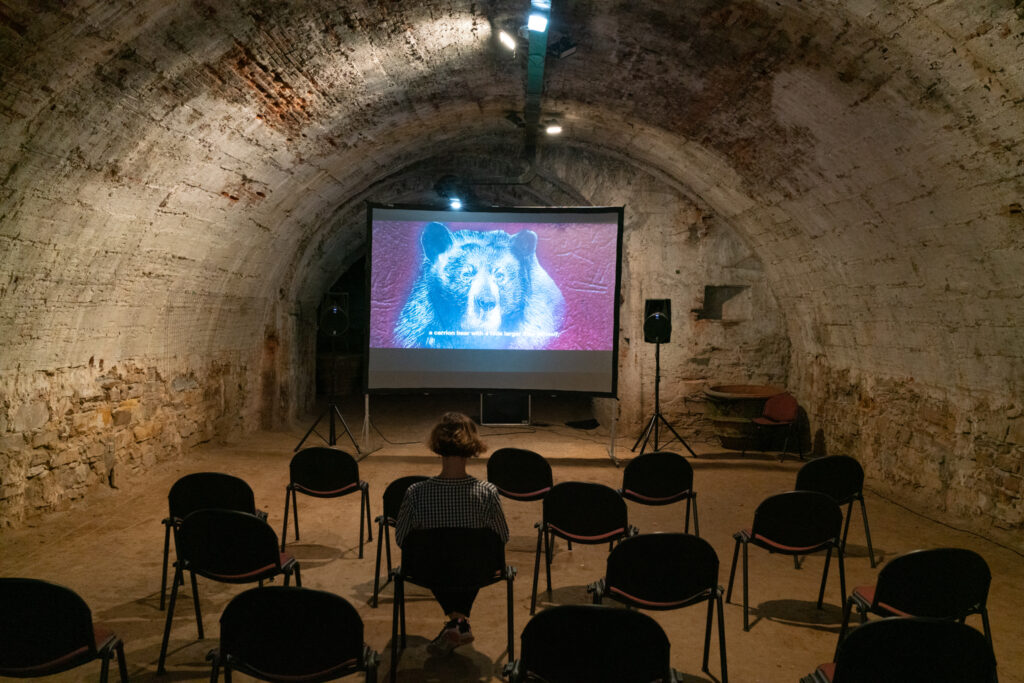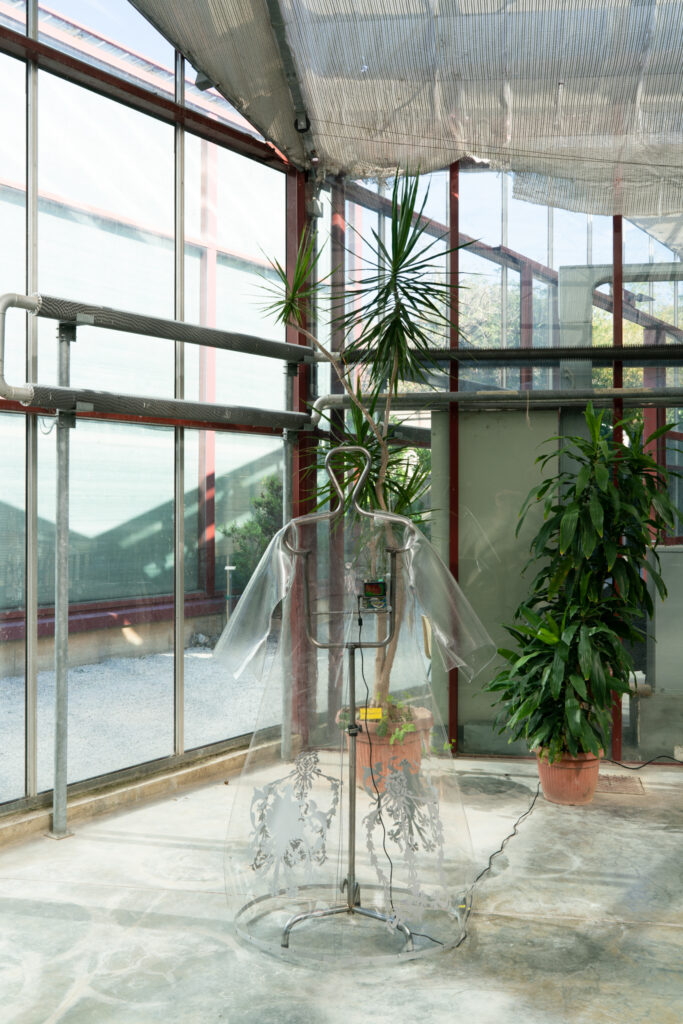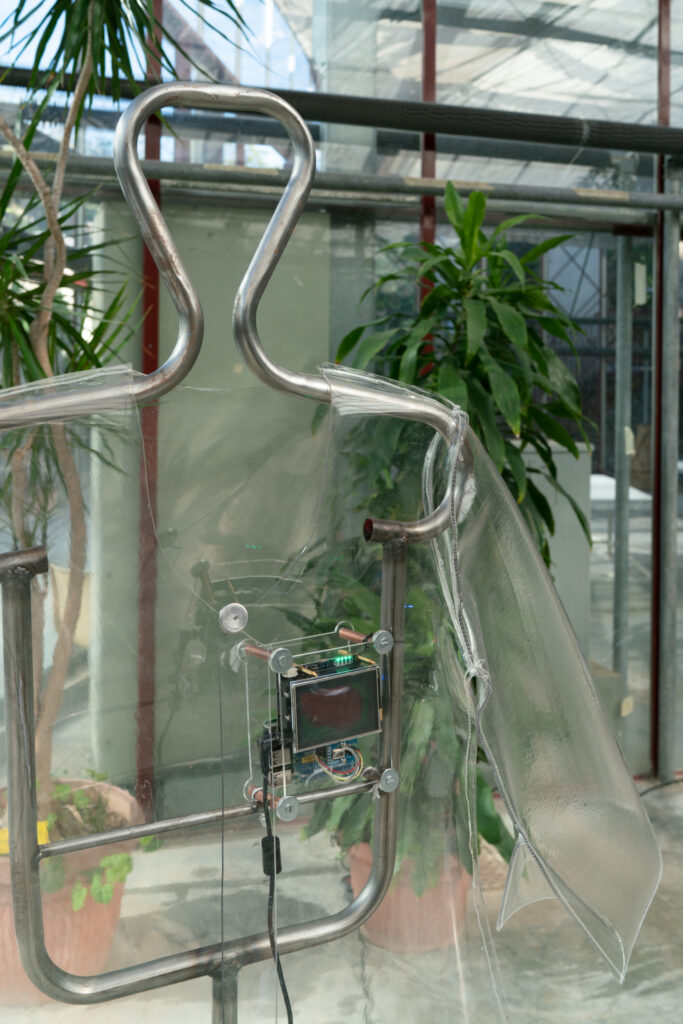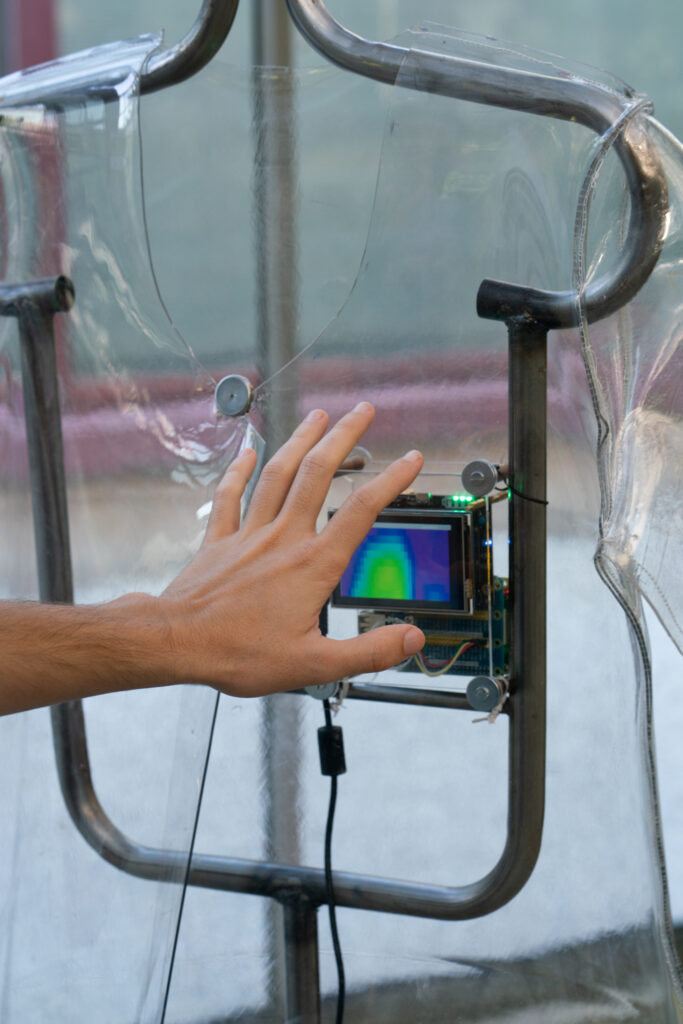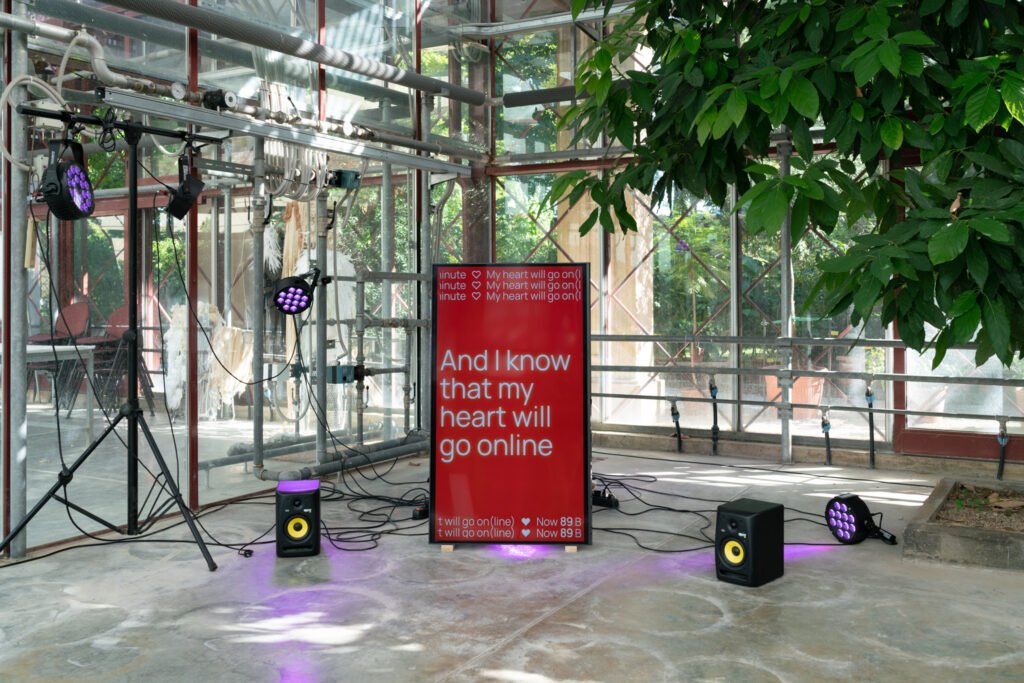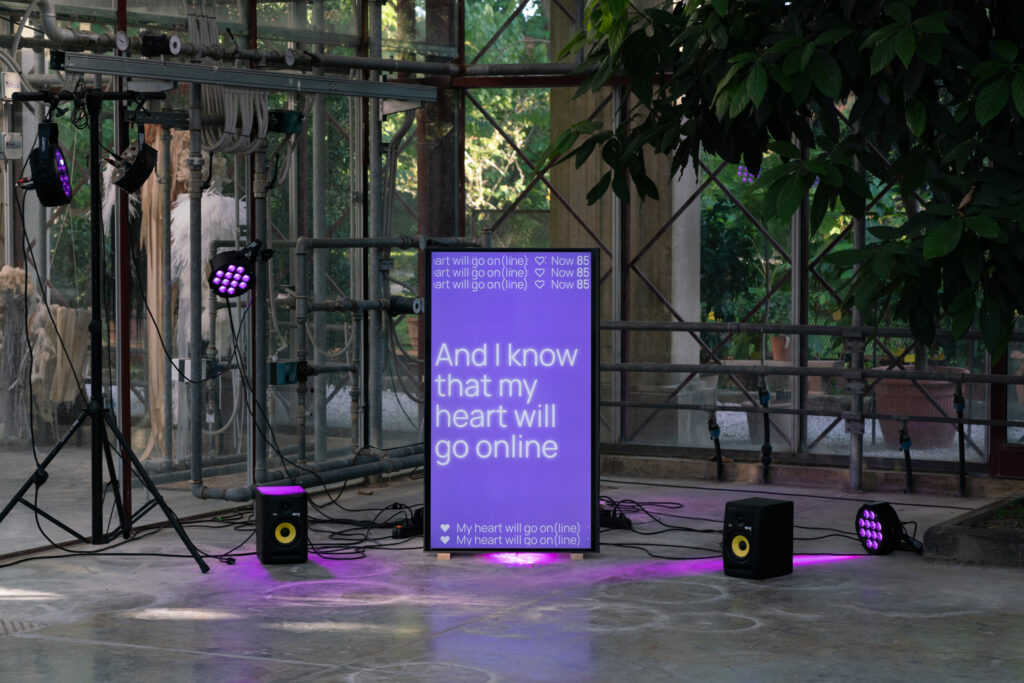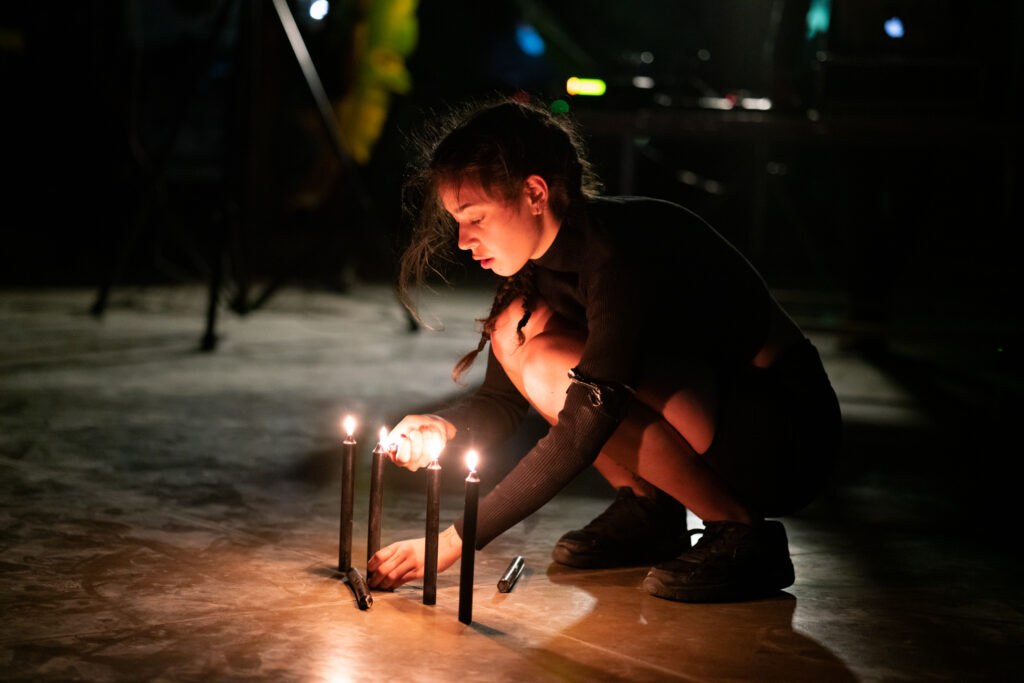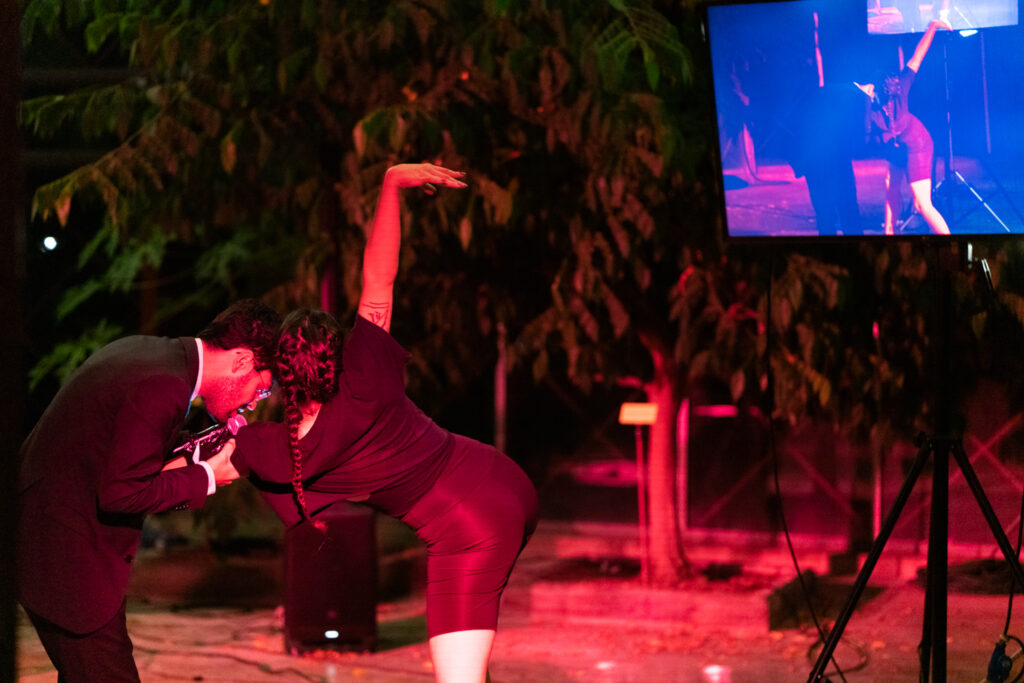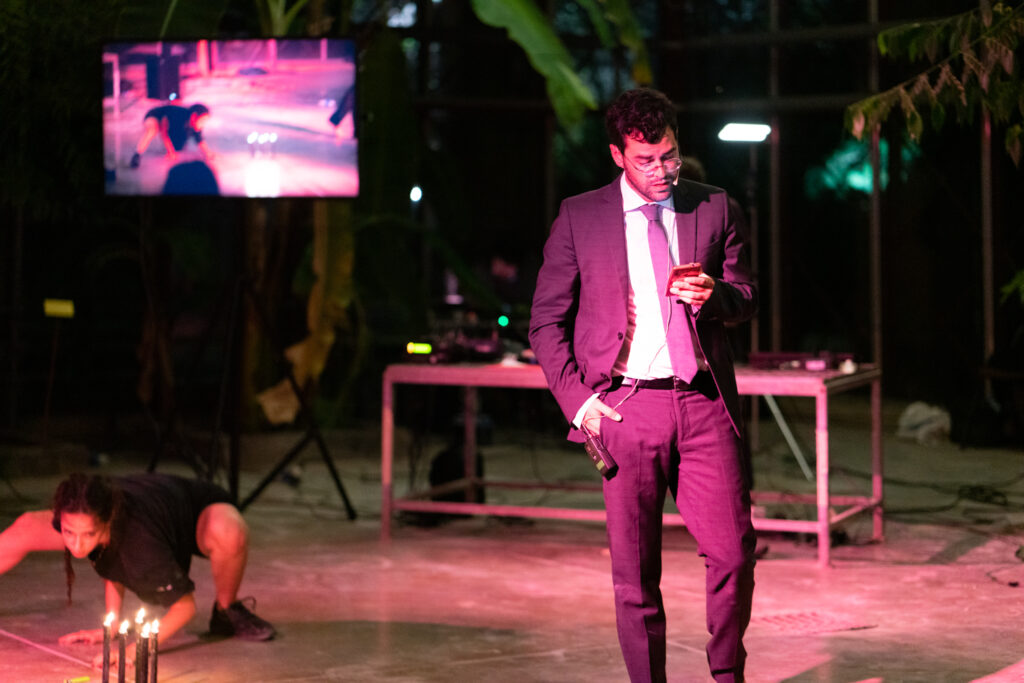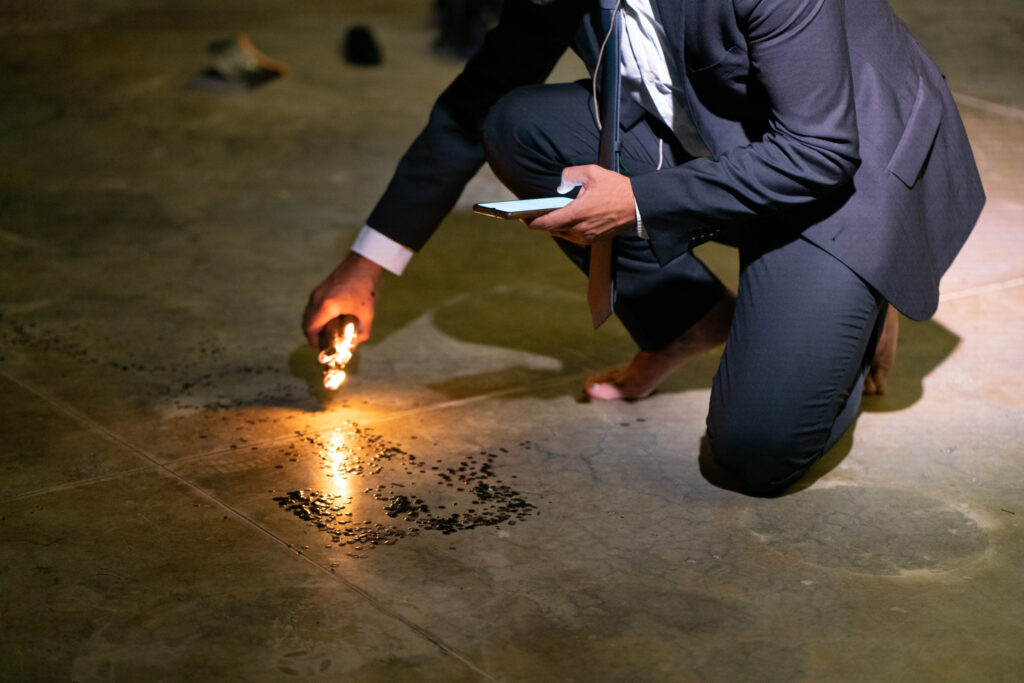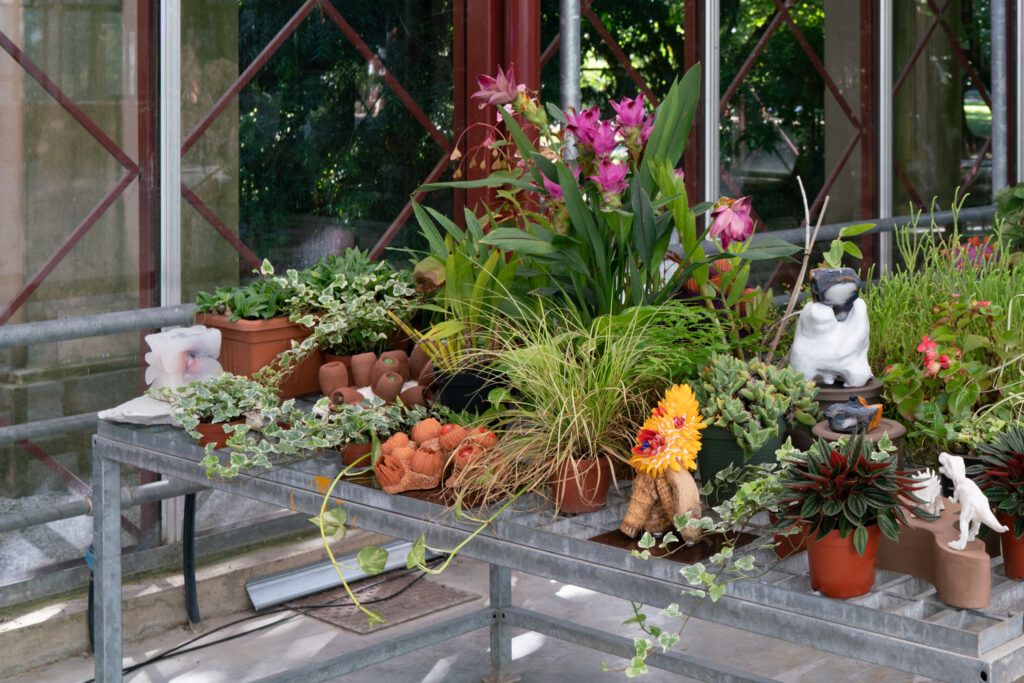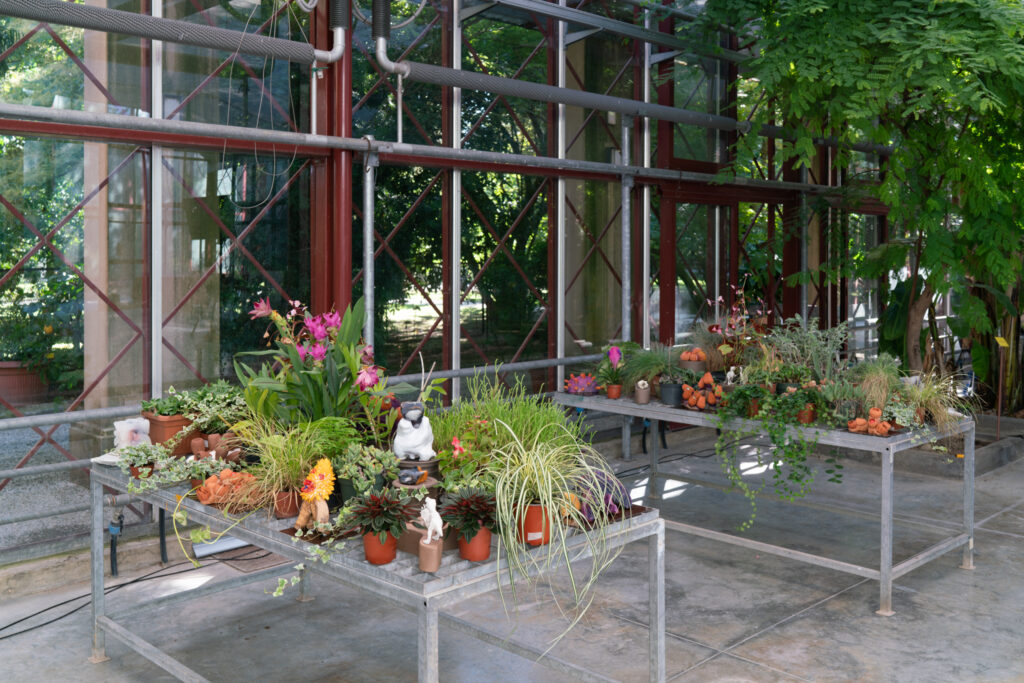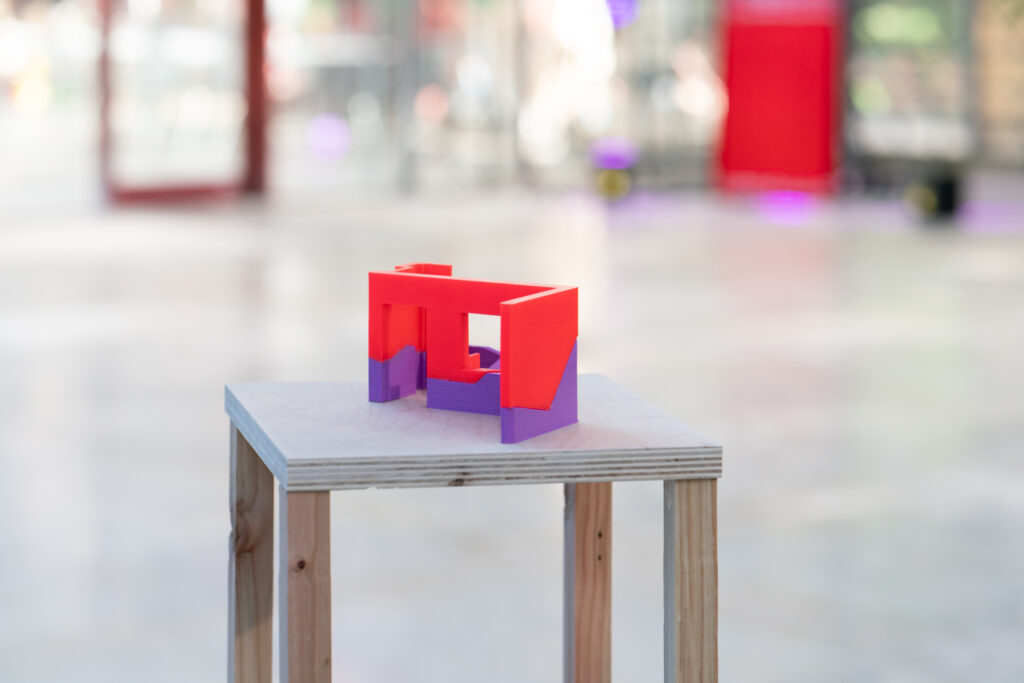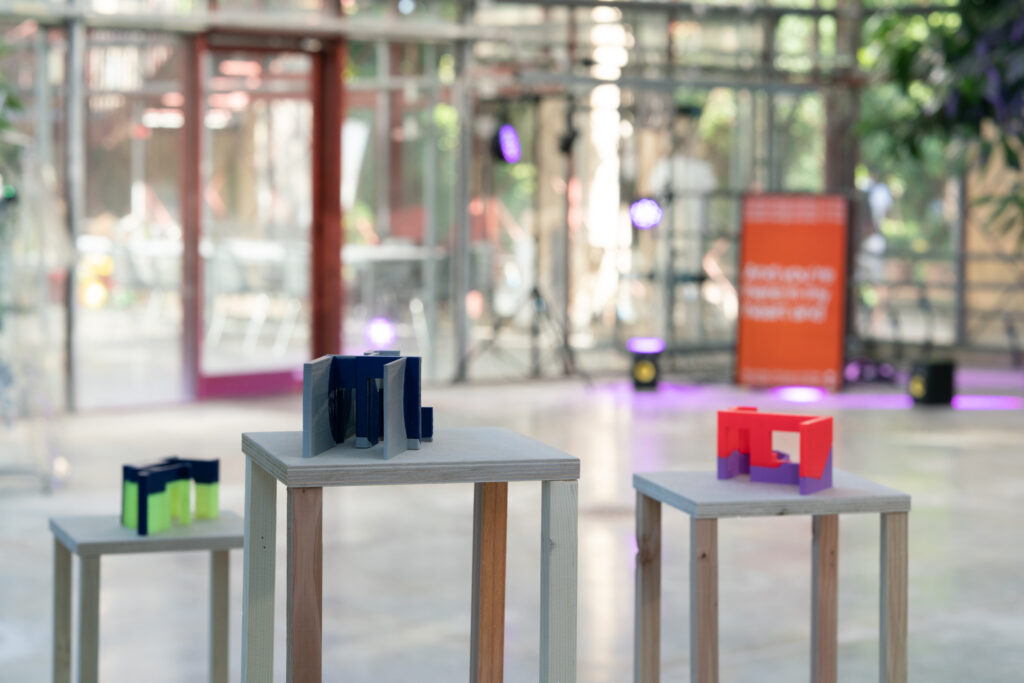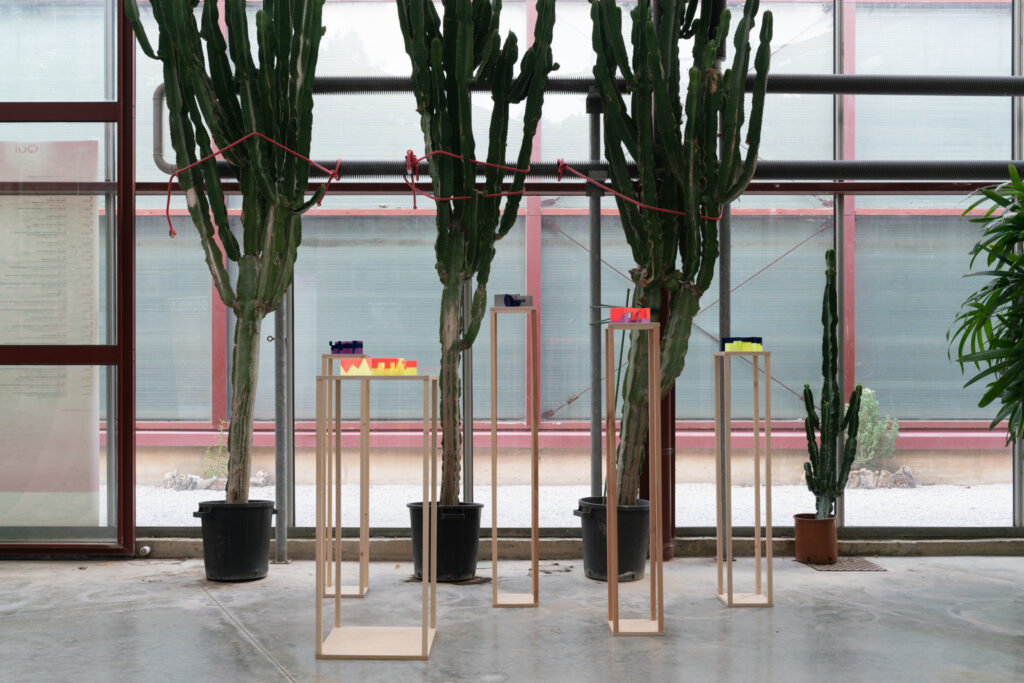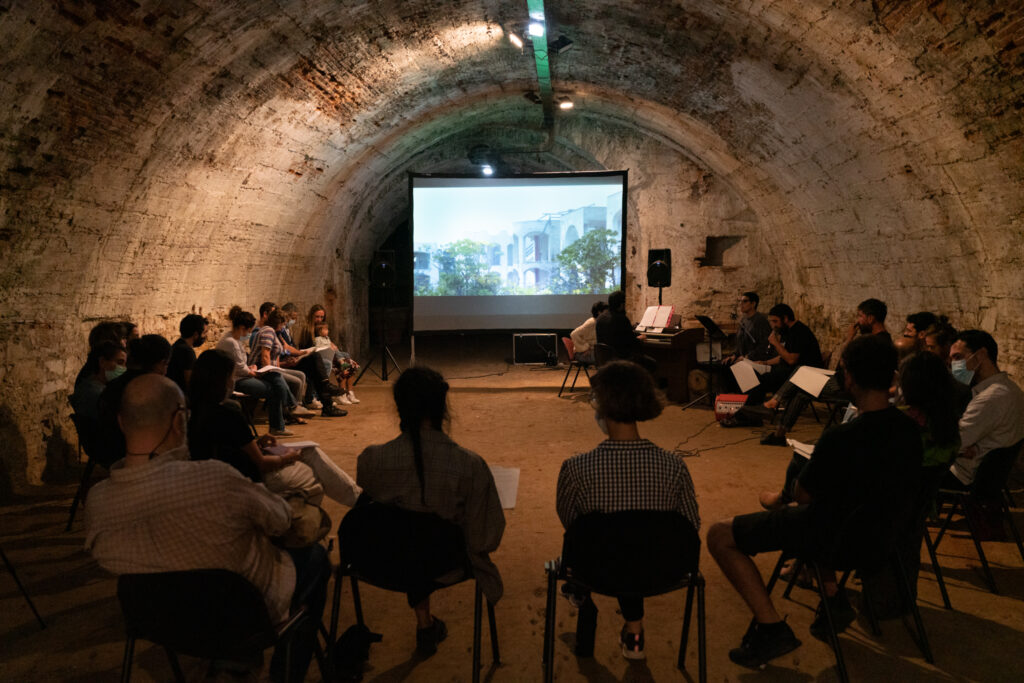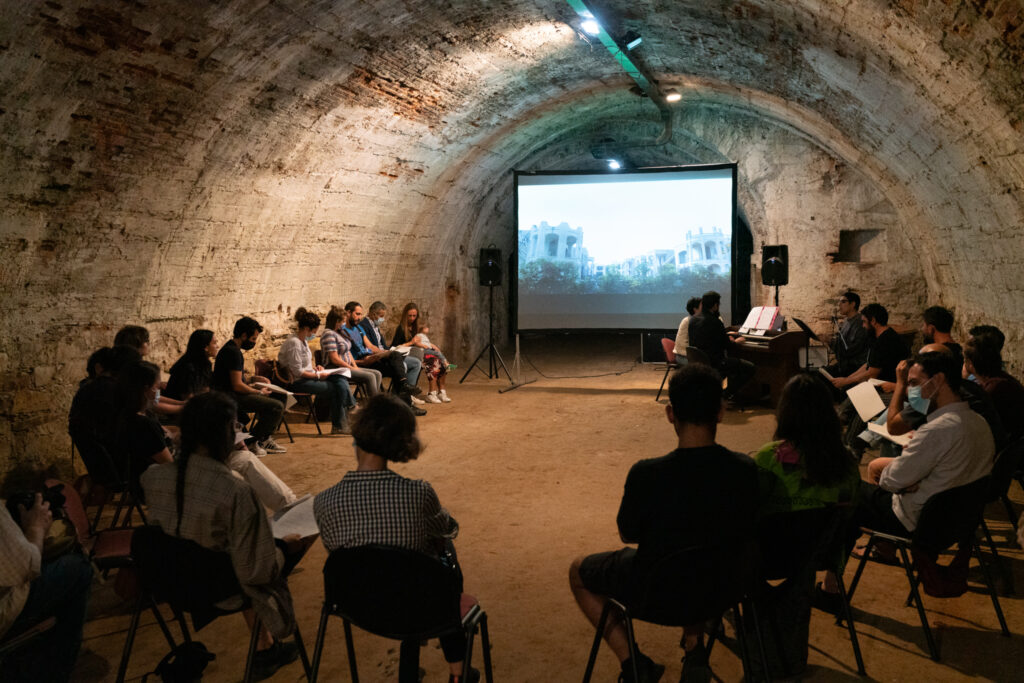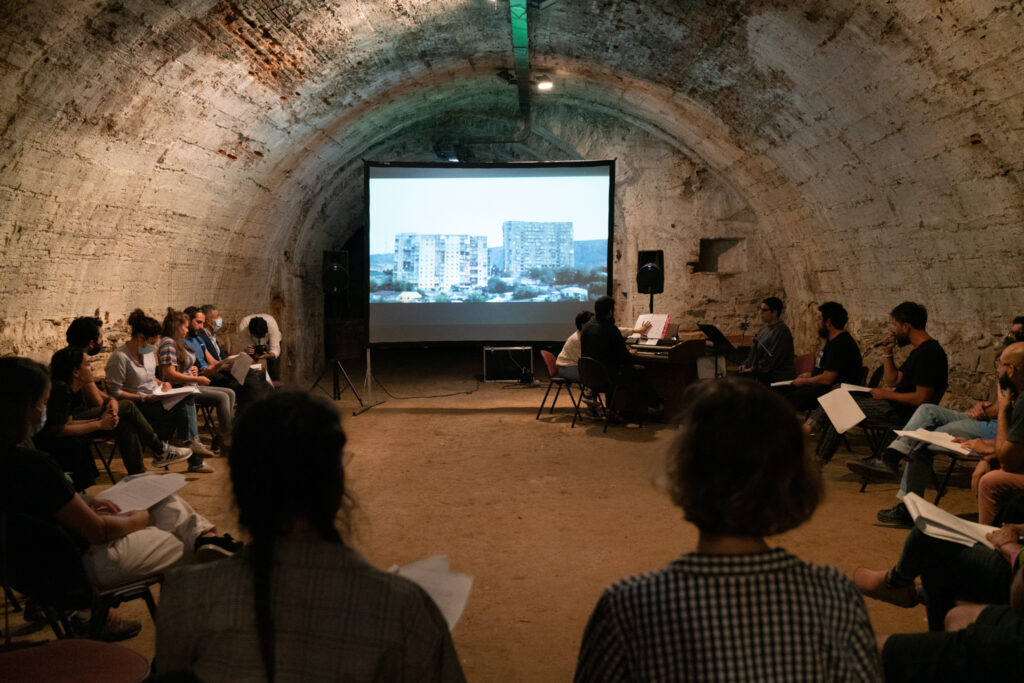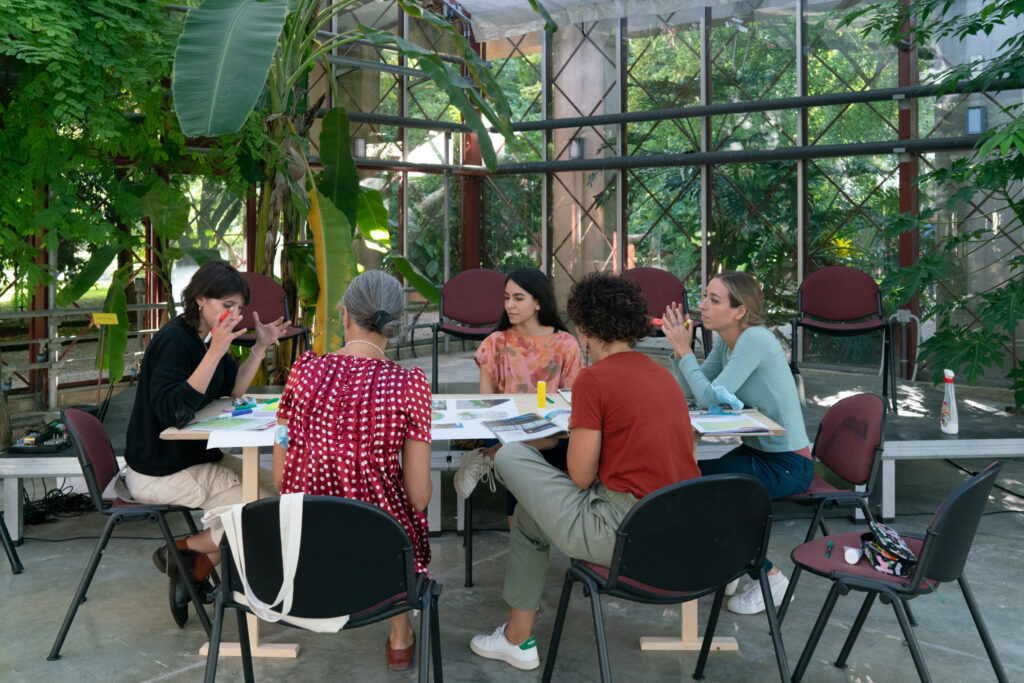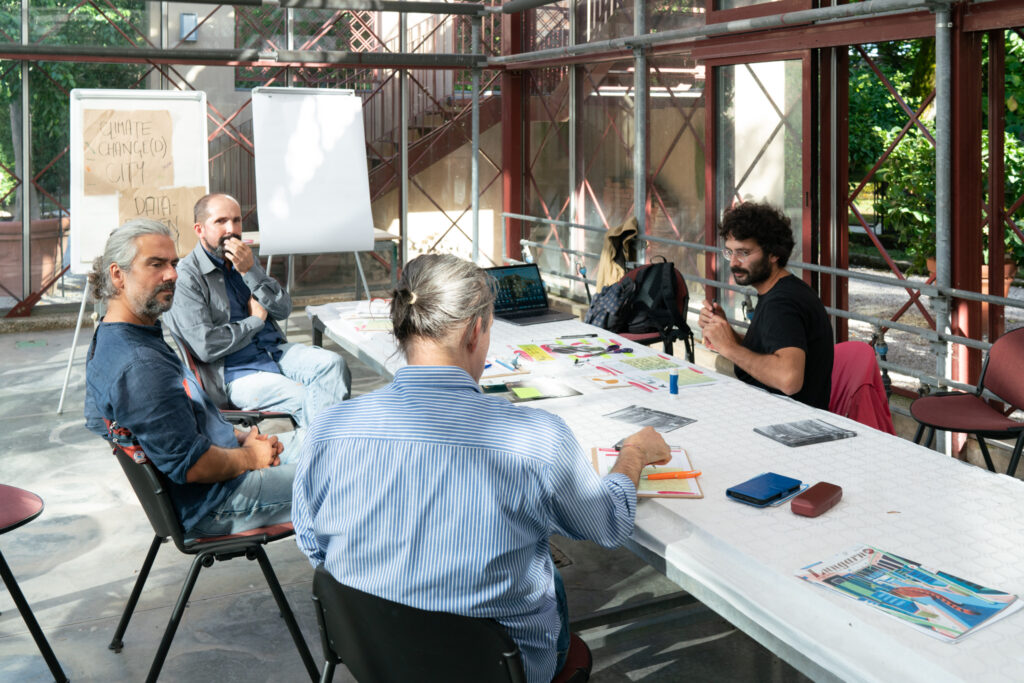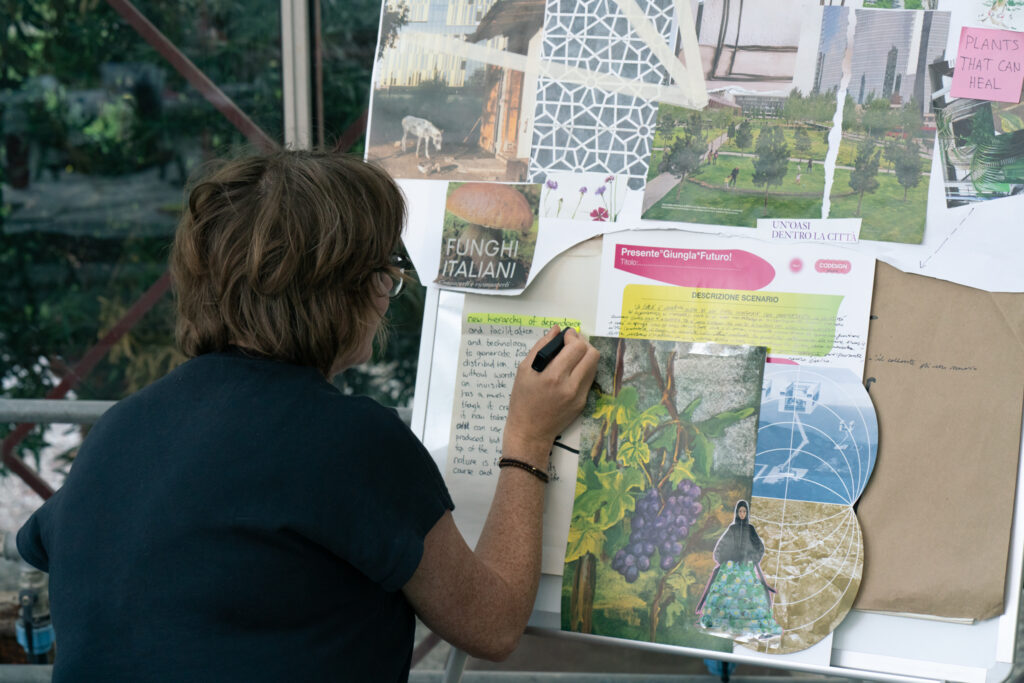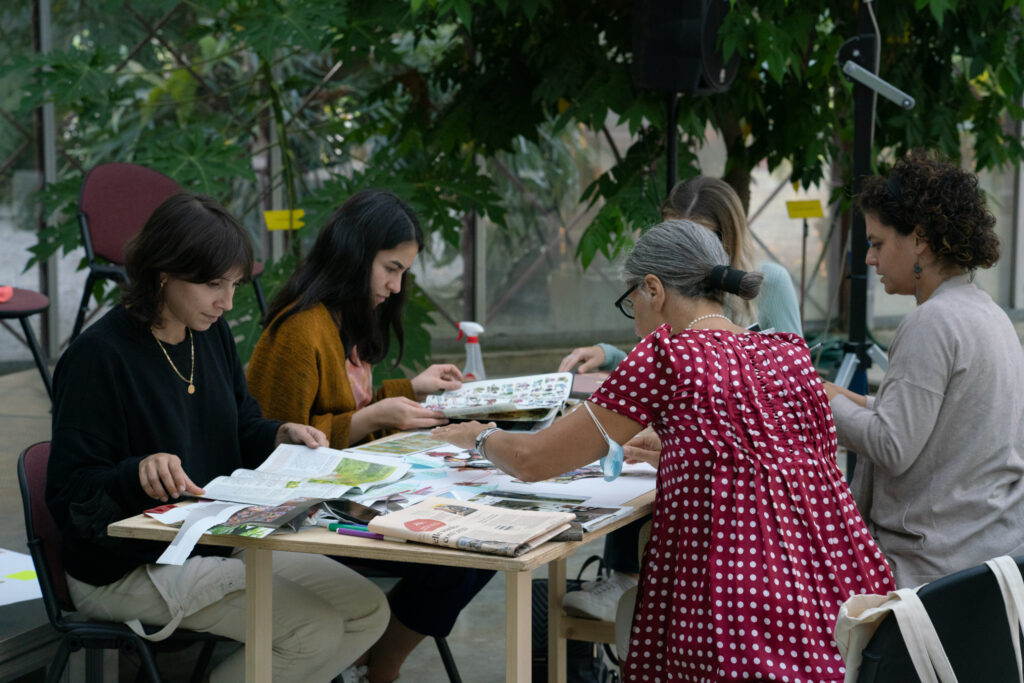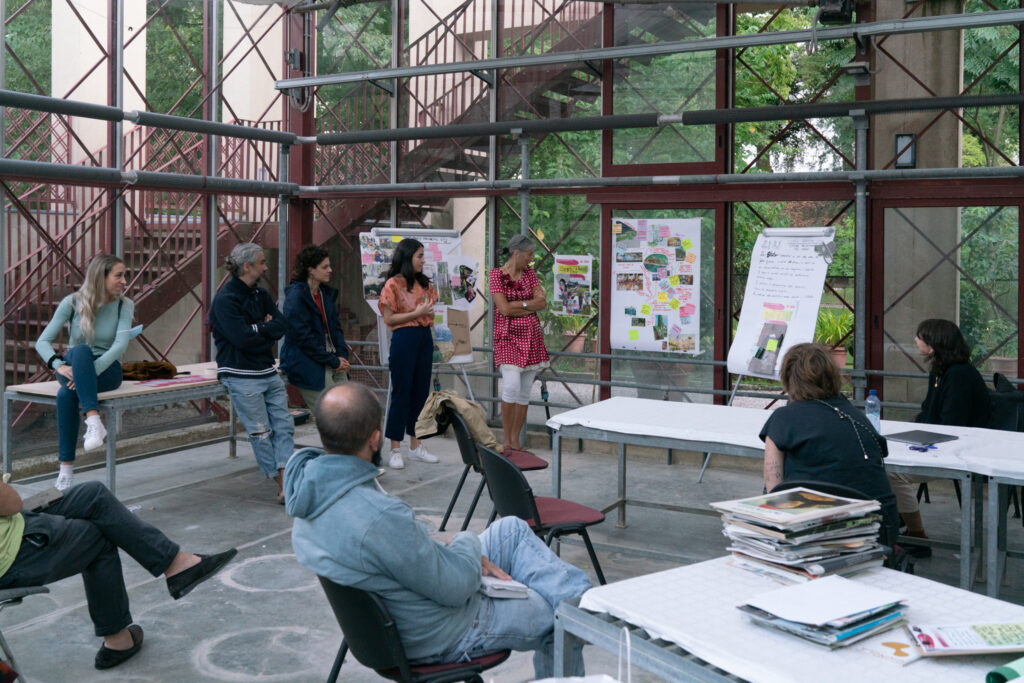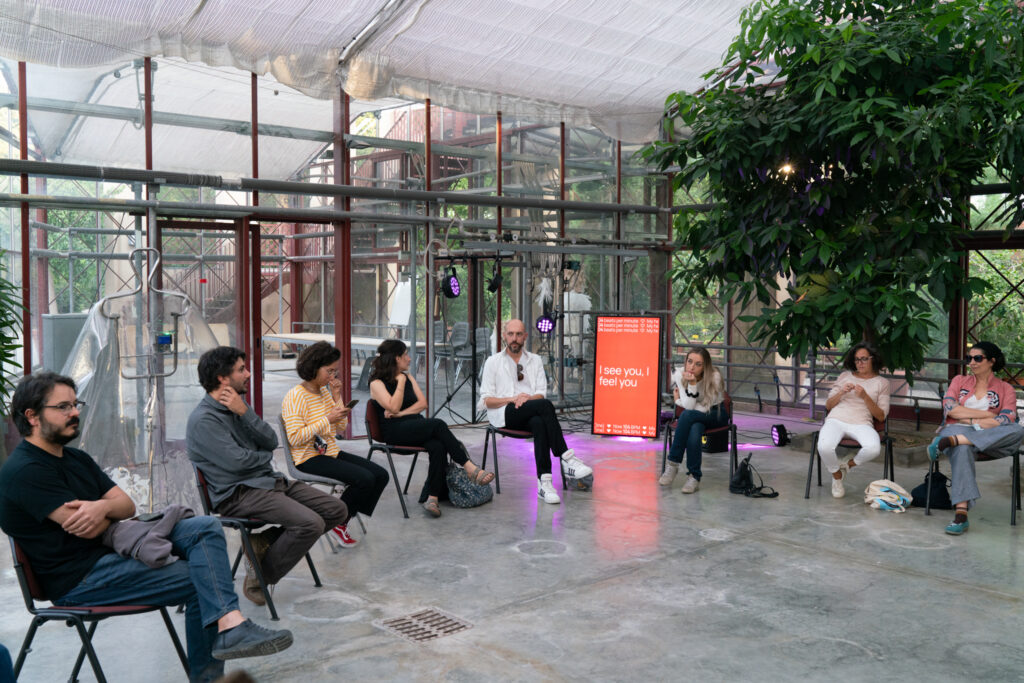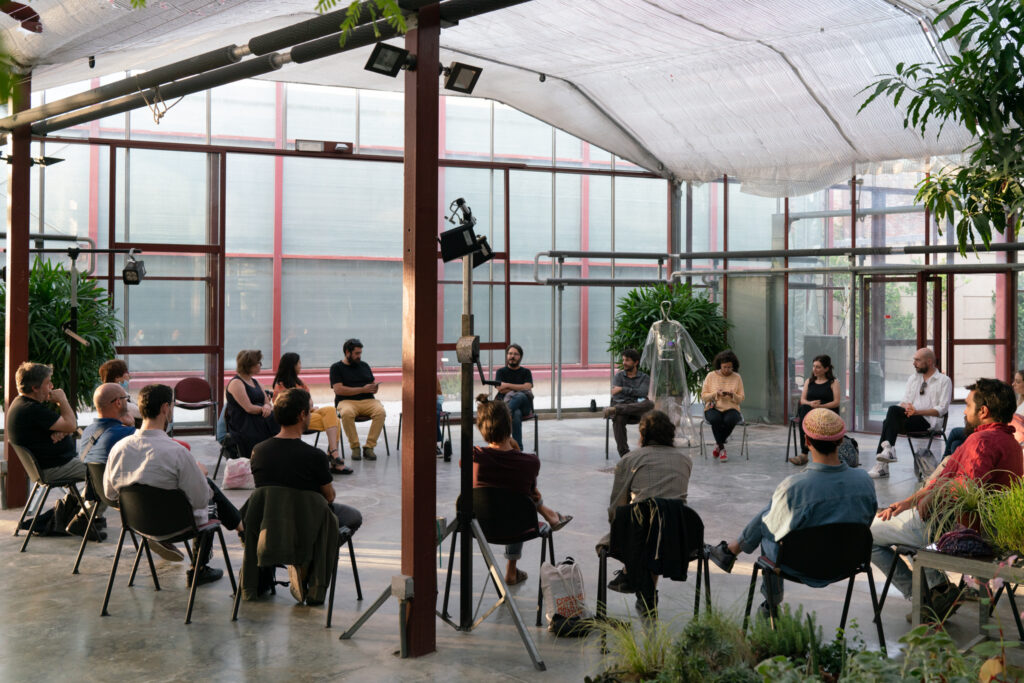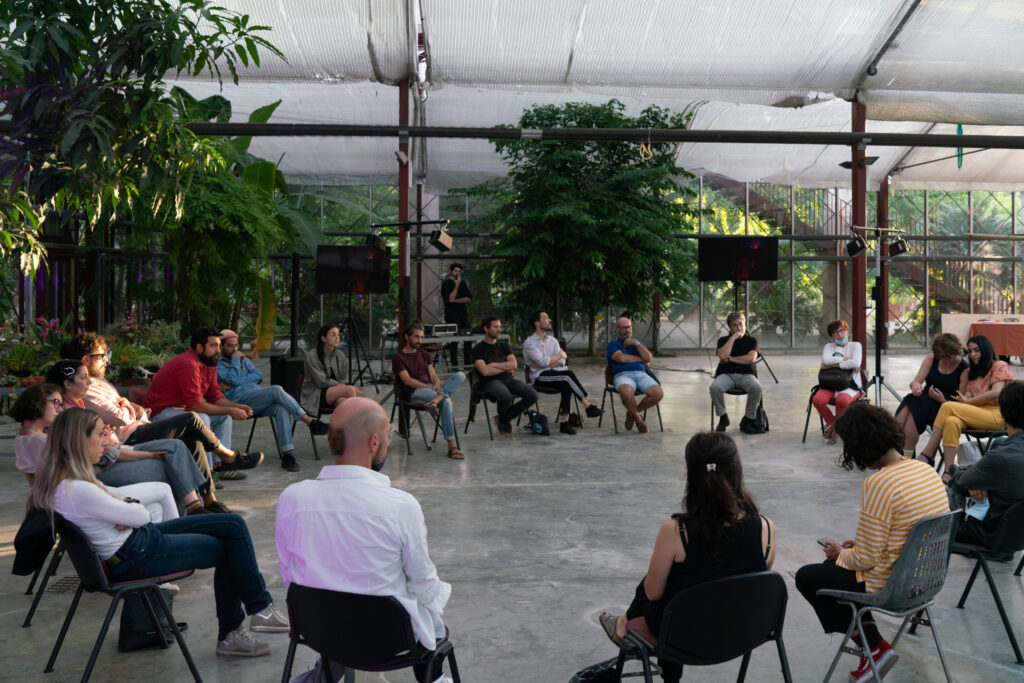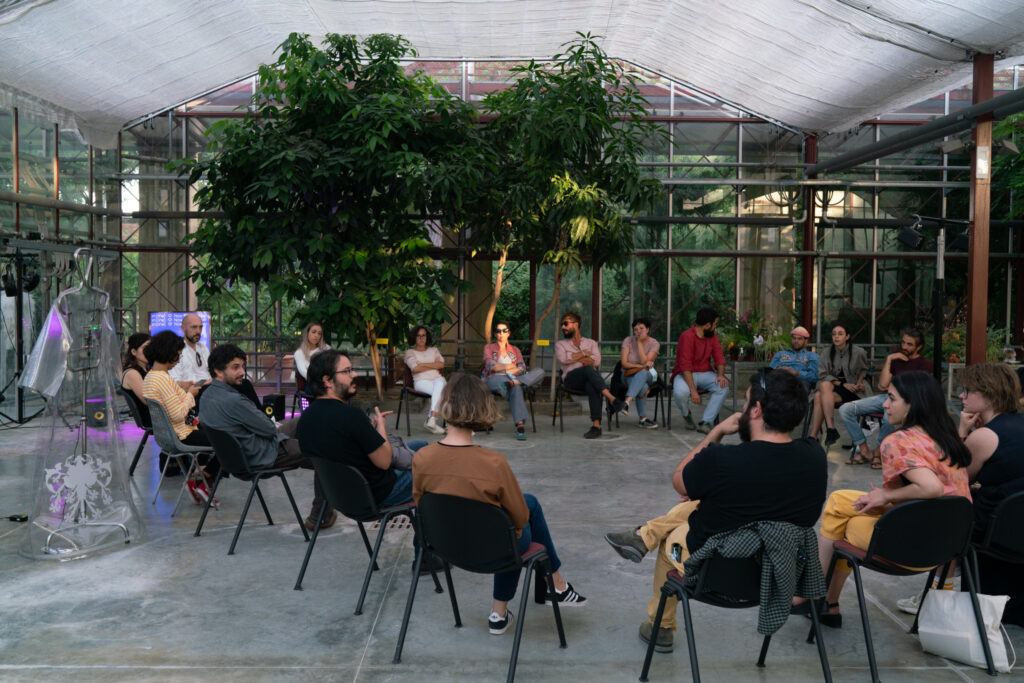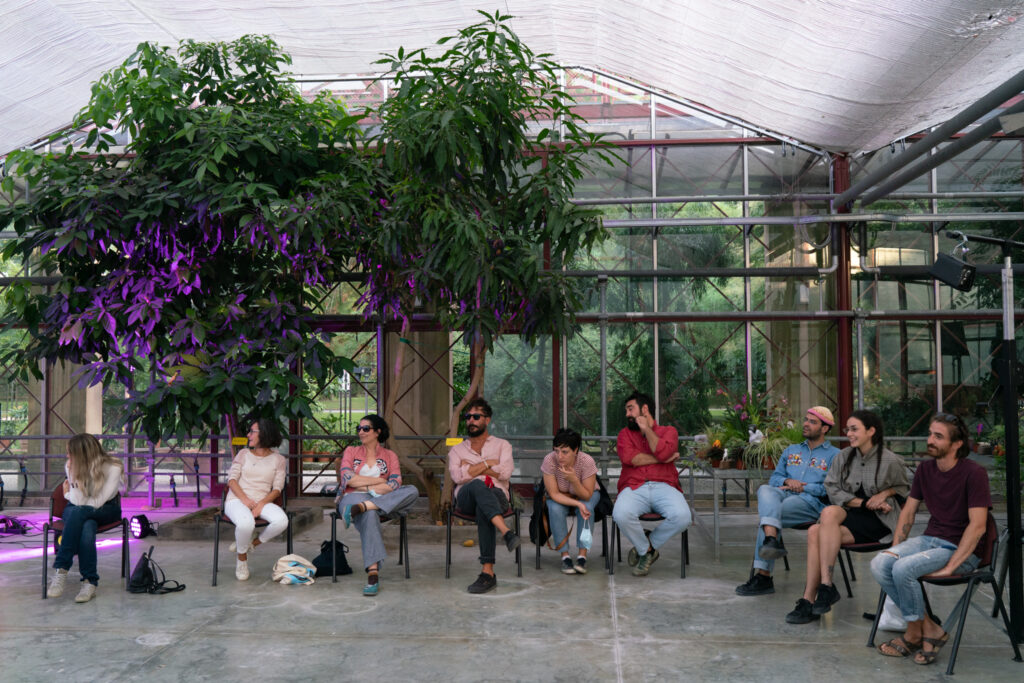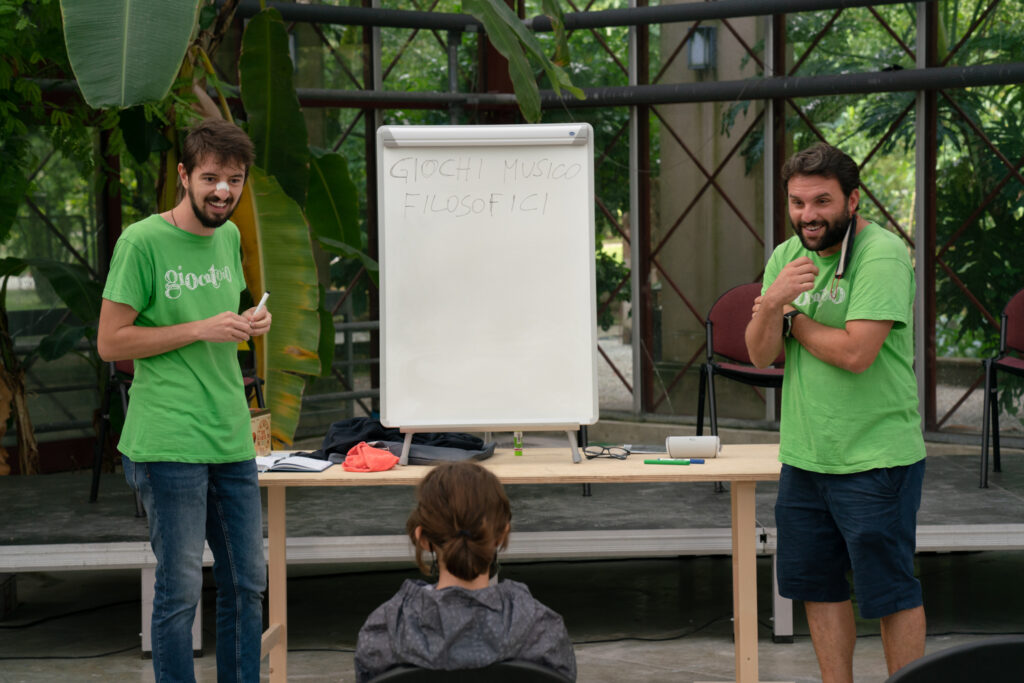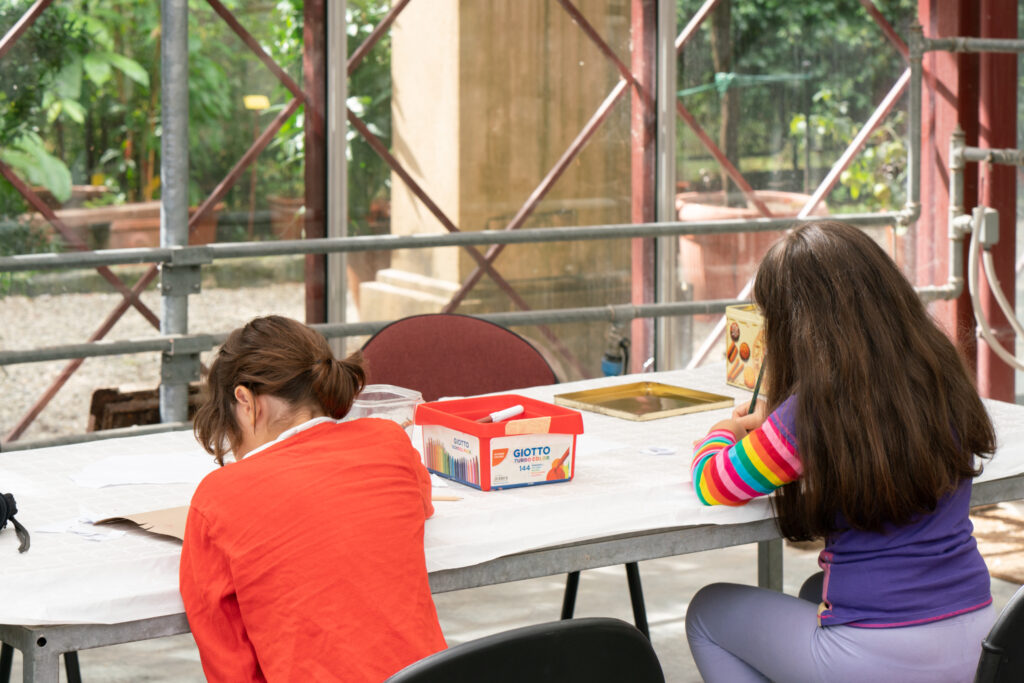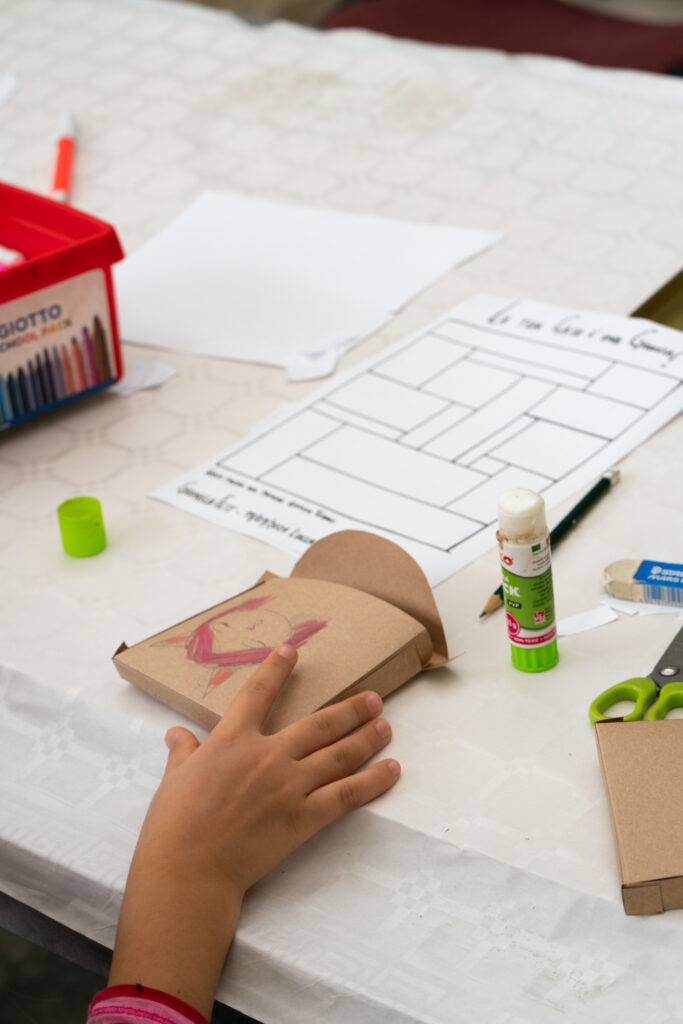Nel 2021 la nostra Giungla è “domestica”. Insieme all’ecosistema di relazioni che hanno reso possibile questa edizione, abbiamo deciso di concentrare la riflessione sul concetto di “abitare”, di vivere la casa, qualsiasi essa sia per noi.
Nella nostra giungla domestica, più o meno popolata, più o meno violenta, più o meno rumorosa, si osserva da vicino ciò che significa ecologia. Un’ecologia intesa non soltanto come la necessità di conservare e difendere la natura, ma nel suo significato primario, ovvero lo studio delle relazioni tra organismi o gruppi di organismi e il loro ambiente naturale.
Al di là delle specie, considerando tutto e tutti “estrani strani”, noi ci ritroviamo ad abitare luoghi, a far casa, a regolare questo dispositivo che diventa il doppio del nostro corpo, che né include, né esclude, ma è osmotico e subisce o riceve l’esterno in molti modi. L’intruso è lo squillo del telefono o il ladro? È la zoom call o il congiunto? Il gatto sul divano o il rumore del letto dei vicini?
Il battito del nostro cuore è troppo lento per la velocità dei nostri dati, eppure gli inseguiamo col mouse, aprendo stanze che, per ampliare così la nostra casa, bisognerebbe chiedere un condono grande come la città, o forse più.
E l’immaginazione ci fa sognare futuri utopici o preannunciare distopie fatte di esseri, prodotti e processi che poi scopriamo essere presenti, reali. Cos’è alieno e cosa no, possiamo davvero dirlo?
Giungla Ed. 1 comprende queste domande, è una giungla domestica che prende il romanzo omonimo di Gilda Musa come fonte di simboli. Il testo è stato condiviso con gli artisti e tutti i partecipanti. Ha risuonato in maniera diversa in ognuno di loro e nei giorni della rassegna la narrazione che nascerà parlerà di un’ecologia di relazioni coltivate nei mesi passati.
Un libro come epifania
La scoperta del libro Giungla domestica di Gilda Musa è stata un’epifania. Si tratta di un romanzo di fantascienza degli anni 70, la cui protagonista è Costanza, curatrice di un Orto Botanico che vive da sola nella vecchia casa della nonna defunta. Qui passa gran parte del suo tempo in una serra a cui si accede dalla cucina, che lei chiama appunto “giungla domestica”. La nonna le ha lasciato anche i suoi taccuini, in cui appuntava esperimenti con le piante, avvistamenti di ufo e altre informazioni personali. Alcuni avvenimenti e simboli ci hanno particolarmente ispirato: gli avvistamenti degli ufo appuntati dalla nonna che rimandano ad un mondo extra-terrestre, forse al sogno di un’altra casa per noi umani; il telefono e la televisione come elementi di disturbo del quotidiano, le tecnologie dell’epoca sostituite oggi da cellulari e computer; gli esperimenti sulla sensibilità delle piante fatti da Costanza, tematica attuale nei dibattiti scientifici e non solo.
ENGLISH
In 2021 our jungle is “domestic”. Together with the ecosystem of relationships that made this edition possible, we decided to focus on the concept of “inhabiting/dwelling”, of experiencing the house, whatever this may be for us.
In our domestic jungle, which is more or less populated, more or less violent, more or less noisy, we can closely observe what ecology means. Ecology is here understood not only as the need to preserve and defend nature, but also in its primary meaning, that is, the study of the relationships between organisms or groups of organisms and their natural environment.
Beyond the species, considering everything and everyone as “strange strangers”, we find ourselves living in places, making homes, regulating this structure that becomes the double of our body, which neither includes or excludes, but is osmotic and is affected by the outside in many ways. Who is the intruder? the phone ringing or the thief? Is it the zoom call or your relative? The cat on the sofa or the noise of the neighbours’ bed?
Our heartbeat is too slow for the speed of our data, yet we chase them online, opening rooms that, in order to actually enlarge our home so, we should ask for an amnesty as big as the city, or perhaps even more.
And the imagination makes us dream of utopian futures or herald dystopias made up of beings, products and processes that we then discover to be present, real. What is alien and what is not, can we really say it tell them apart?
Giungla Ed. 1 consists of these questions, it’s a domestic jungle that takes Gilda Musa’s novel of the same name as a source of symbols. The text was shared with the artists and all the participants. It resonated with each of them in a different way and the narrative that will be born in the days of the exhibition will speak of an the ecology of relationships cultivated in the past months.
A book as an epiphany
The discovery of the book Giungla domestica (Domestic Jungle) by Gilda Musa was an epiphany. It is a science fiction novel from the 1970s, whose protagonist is Costanza, curator of a botanical garden who lives alone in her deceased grandmother’s old house. Here she spends most of her time in a greenhouse which is accessed from the kitchen, and that she calls “domestic jungle”. Her grandmother also left her notebooks, in which she wrote down her experiments with plants, UFO sightings and other personal information. Some events and symbols have particularly inspired us: the sightings of UFOs noted down by Costanza’s grandmother seem to refer to an extra-terrestrial world, perhaps to the dream of another home for us humans; the telephone and television as disturbing elements of everyday life, the technologies of the time replaced today by cell phones and computers; the experiments on the sensitivity of plants made by Costanza, a current topic in scientific debates and beyond.
This was the starting point for our reflection both with the artists of the exhibition – whose title is a quote from the novel – and with the guests, and from here the contents that we will explore with the S.O.F.A. Circle (symposia, happenings) and philosophical workshops for children.
